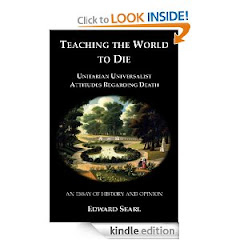 “The principle of compassion lies at the heart of all religious, ethical and spiritual traditions, calling us always to treat all others as we wish to be treated ourselves. Compassion impels us to work tirelessly to alleviate the suffering of our fellow creatures, to dethrone ourselves from the centre of our world and put another there, and to honour the inviolable sanctity of every single human being, treating everybody, without exception, with absolute justice, equity and respect.”
“The principle of compassion lies at the heart of all religious, ethical and spiritual traditions, calling us always to treat all others as we wish to be treated ourselves. Compassion impels us to work tirelessly to alleviate the suffering of our fellow creatures, to dethrone ourselves from the centre of our world and put another there, and to honour the inviolable sanctity of every single human being, treating everybody, without exception, with absolute justice, equity and respect.”So begins a just launched campaign to “bring the world together,” known as the Charter for Compassion. Karen Armstrong, former nun who has become a popular writer on big issues of religion such as God and Christian/Muslim relations, is a leading voice urging this initiative. Her studies on religion have led her to conclude that compassion is common ground across various religions. She advocates compassion as a means toward a greater campaign promoting the Golden Rule as a worldwide ethic.
The Charter for Compassion’s carefully drafted statement (November 12) was guided by Council of Sages, a multi-faith, multi-national group of religious thinkers and leaders.
In my estimation this campaign reflects a recently revivified interest in promoting the Golden Rule as a means to unify a fragmented world, a world that grows smaller and smaller through communication and travel. In this way Globalization meets Universalism.
This emphasis helps organized religion across the spectrum to transcend isolating and contentious sectarianism.
In earlier postings on this blog I’ve identified the Golden Rule as a significant aspect of Barack Obama’s personal religion and worldview. I recommend this as 21st century moral, world leadership.
All efforts seeking common ground and human mutuality are on target and sorely needed.






